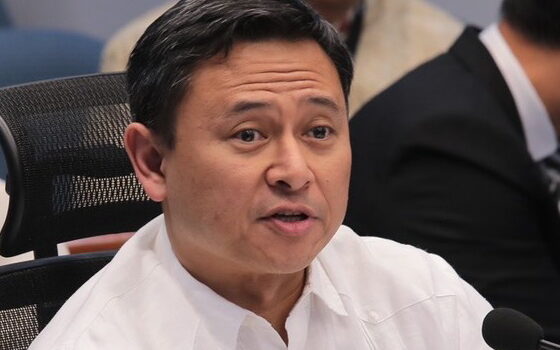No to foreign ownership of basic education institutions – Angara

Sen. Juan Edgardo Angara (SENATE PRIB)
MANILA, Philippines — The Senate will not open up basic educational institutions to foreign ownership, Senator Sonny Angara said anew on Tuesday.
Angara made the remark during a Senate subcommittee’s 4th public hearing on Resolution of Both House No. 6, which seeks to amend the 1987 Constitution particularly on its provisions on educational institutions, advertising, and public services.
“You can rest assured we will not open up basic education. That was touched on by several resource persons. Many said last week that it should not be opened,” Angara said.
Foreign ownership is being considered for higher education institutions instead, the senator earlier clarified.
“At the outset of the educational institutions session, we already said the intention was not to open up basic education [because of the] importance of values formation, nationalism, among others, exactly what you said,” Angara added during the public hearing.
During the hearing, DepEd Assistant Secretary Francis Cesar Bringas cautioned against the proposal to allow foreign ownership in education by amending Section 4, Article 14 of the Constitution.
He warned that inserting the phrase “unless otherwise provided by law” in the provision “could potentially serve as a gateway to expand the scope of control and administration over educational institutions, not solely by citizens of the Philippines, but by other entities as well.”
He added that “having foreign entities control basic education facilities in the country” may contradict the department’s mandate to inculcate Filipino values to young learners as enshrined in the country’s principal Charter.
In response, Angara reiterated his stance that the upper chamber will keep basic education closed to foreign investment.
Previously, charter framer Hilario Davide Jr. said that opening up the country’s education sector to foreign owners could make schools vulnerable to foreign control.
“The proposal [RB6] opens to foreign control and dominance, our basic education, which is the most crucial to the development of our young,” he said during the 1st hearing on RBH 6.
On the other hand, the Technical Education and Skills Development Authority said on Tuesday’s hearing that opening up higher education institutions to foreign ownership will assist technical vocational schools in producing more quality workers, thus enhancing the country’s standing in global trade.